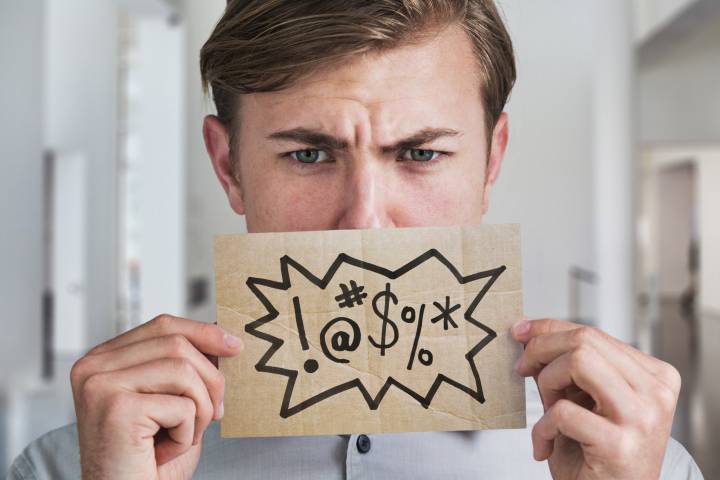We all try to control our language, but it’s much easier to do that when you understand why it happens in the first place.

So, where do swear words come from?
According to Benjamin K. Bergen, author of “What the F: What Swearing Reveals About Our Language, Our Brains and Ourselves,” there are two main reasons.
One has to do with the origin of the words themselves.
There are lots of dimensions of human experience that are taboo; things that we would rather keep private in our own homes so that other people can’t see us do them. Those domains of experience often lend themselves to words that are also taboo.
So that is why many of the strongest swear words in English have to do with sex or with bodily functions.
LISTEN: Benjamin K. Bergen speaking on CKNW’s, The Jon McComb Show
Swear words can also exist due to their social history. Not all words that relate to bodily functions are bad words, as many of them, could be said in front of your doctor or your kids.
We at some point in time decided that there are certain words that make us uncomfortable and we teach that to our kids.
Whether we tell them directly or we discourage other adults using certain language around them, kids learn it in an intuitive and emotional way, that there is something wrong with these ‘bad words’, and we carry that with us throughout our entire life.
“If it weren’t for the prohibition against these words, then no one would have those reactions anymore”
The harmful words affect us differently; our heart rate and blood pressure increases, blood flows to our extremities and we can measure sweat on our fingertips. We react strongly to these words because of the lessons we learned as children.
Do people with a limited education or vocabulary swear more?
According to Bergen, evidence actually points to the opposite. Experiments have shown that when you measure a person’s IQ and general vocabulary, you will find that their swearing capability is positively correlated.
“In other words; the more they can swear, the higher their verbal and general IQ appears to be”
Are people who swear more honest than those who don’t?
According to the joint study by Maastricht University, Hong Kong University of Science and Technology, Stanford University and the University of Cambridge, those who swear like sailors are considered more sincere than those who don’t swear or keep their profanity to a minimum.
“We set out to provide an empirical answer to competing views regarding the relationship between profanity and honesty,” the paper reads. “We found a consistent positive relationship between profanity and honesty; profanity was associated with less lying and deception at the individual level, and with higher integrity at the society level.”
So why do we swear when we accidentally hurt ourselves?
Deep inside the brain is something called the basal ganglia and its job is to select some action on the basis of a strong emotion.
“In humans, there are lots of things that the basal ganglia tells us to do when experiencing a strong emotion: fight or flee, screech out in pain or roar in anger,” explains Bergen.
Over our lives, we have trained ourselves to use intentional or polite language. However, it is the basal ganglia that tries to override that when we express strong emotion… or stub our toe!
- Canadian man dies during Texas Ironman event. His widow wants answers as to why
- Several baby products have been recalled by Health Canada. Here’s the list
- ‘Sciatica was gone’: hospital performs robot-assisted spinal surgery in Canadian first
- Dating apps ‘worse than ever’ for your privacy, report warns








Comments